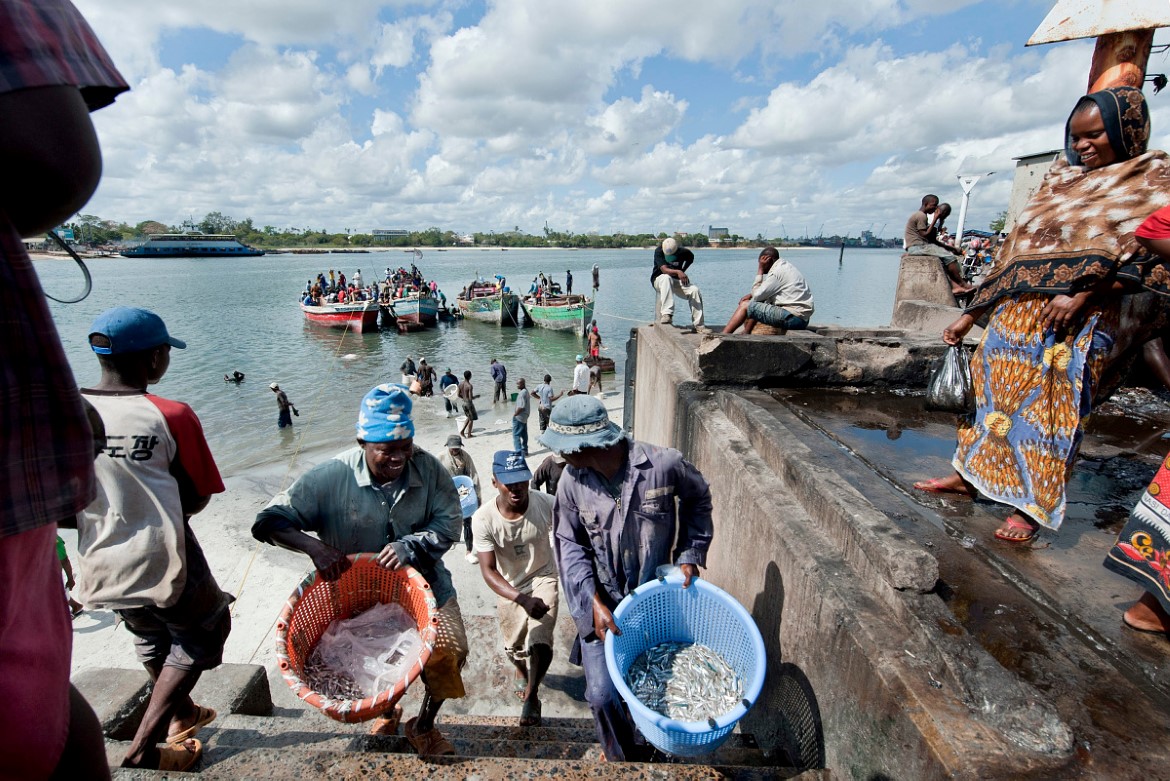
Fish for Development
FfD is responsible for coordinating all development projects supported by Norway in the field of fisheries and aquaculture. This includes responding to requests from developing countries for assistance within sustainable fisheries and aquaculture.
In 2016, the Norwegian aid within the field of fishery and aquaculture was reorganized within the Fish for Development program. One of the main objectives was to increase the opportunity countries under development has to take advantage of Norwegian expertise and competence within this field. The program is connected to the UN Sustainable Development Goal (SDG) 14 – ‘Conserve and use the oceans, seas and marine resources for sustainable development’ – which is a key goal of the FfD. In addition, the results achieved within the program contributes to the progress made in order to achieve the aim of ending poverty (SDG 1) and hunger (SDG 2).
Fish for development is divided into three main components:
- Education and research, including the Nansen program
- Industrial development, including aquaculture
- Management of fisheries, including the fight against illegal fishing
The Nansen program is the largest area of investment within the Fish for Development section. The program provides assistance to the development of a sustainable management of fisheries based on knowledge among countries under development.
Goals of FfD
The Fish for Development programobjective is to increase the ability of fishery and aquaculture sectors to contribute to the socio-economic development within our partner countries. This includes increased employment for women and men, and increased food and nutritional security for partner countries citizens/people.
FfD has three intermediate objectives:
- Objective 1: The authorities manage fisheries resources and aquaculture production in a sustainable manner
- Objective 2: Research and educational institutions assist the authorities and private sector entities with knowledge, data and advice about sustainable fisheries and aquaculture
- Objective 3: Private sector entities exploit fisheries resources and engage in aquaculture production in a sustainable manner
When developing and operationalizing a bilateral country programme, FfD draws upon the expertise and experience of Norwegian public institutions and universities involved in in fisheries and aquaculture management, which then enter into agreements of cooperation with their respective institutions.
Organisation of the program
The Secretariat of the Fish for Development program coordinates all Norwegian development collaboration within fisheries and aquaculture. The secretariat is a part of the section of knowledge programs within the Knowledge Bank. An interministerial advisory group of representatives from the Ministry of Foreign Affairs and the Ministry of Trade, Industry and Fisheries provides strategical advisory services to the program. The responsibility of the secretarial functions of the group has been given to the secretariat of Norad.
The main Norwegian partners of the FfD program are the Ministry of Trade, Industry and Fisheries, the Directorate of Fisheries, the Institute of Marine Research, the Norwegian Veterinary Institute, The Norwegian national advisory group against organized IUU-fishing, the Arctic University of Norway, the University of Bergen, and the Norwegian University of Life Sciences.
The international partners are the Food and Agriculture Organization of the United Nations, the World Bank, the United Nations Office on Drugs and Crime, and the WorldFish Centre.
The main partner countries of the FfD program are Colombia, Ghana og Myanmar, but the program also supports and coordinates fisheries and aquaculture projects in many other countries. Please see annual reports below for more information on our projects and partner countries.
Norway is one of the world’s leading fishing and aquaculture nations. Since 1952, Norway has provided contributions to the development of fishery and aquaculture within our partner countries. The industry has had a profound impact, both in terms of food security and in terms of economic outcomes such as export, taxation and employment of workers.
